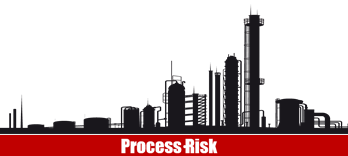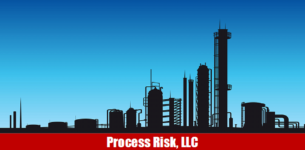Process Hazard Analysis (PHA)
ConsultingProcess Hazard Analysis (PHA) studies are the foundation of process safety and risk management programs. They help companies identify specific process hazard scenarios that could adversely affect people, the environment or operations.
PHA studies can be conducted using various different methodologies or techniques. Popular ones include Hazard and Operability (HAZOP), What-If / Checklist, Failure Modes and Effects Analysis (FMEA) and Hazard Identification (HAZID). A team leader, or facilitator leads and documents a group of people who are knowledgeable in the process being reviewed. Quite often, the facilitator helps prepare for the study, advises on proper methodology, can help determine team members and verifies the study scope. Once the study begins, the facilitator leads and documents the details of all study sessions. The study proceeds by brainstorming potential causes and consequences of possible accidents, identifying safeguards, determining risk ranking and formulating recommendations for appropriate corrective actions.
Hazard scenarios caused by equipment failures, human errors and external events must be considered. Safeguards, facility siting, and human factors issues should be identified and their impact on safety identified. Considering the complexity of today’s chemical processes, the challenges involved in facilitating a PHA study, and the potential liabilities from an incident, your best option for completing PHAs may be to seek the assistance of expert specialists.
Process Risk: provides combined HAZOP/LOPA/SIL verification experience with operations for international petroleum and energy companies. SIL verification experience includes both qualitative evaluations of the layers of protection and quantitative determination of the probability of failure on demand and system availability.
Details
Process Risk can provide facilitators for all types of PHA studies. Common types of PHA studies include initial or redoing of an existing process, revalidations, or project PHAs from concept level through FEED stage all the way through startup. PHAs must be updated and revalidated periodically to account for changes that may have been made to the process. Regulations call for a period of 5 years to be used.
Our facilitators most often are called up to both lead and document a PHA study simultaneously. This provides for a more cost-effective option while still ensuring studies are completed effectively and in accordance with all requirements. Process Risk is fully staffed and offer a separate scribe to work in conjunction with the facilitator if that is preferred or otherwise required by company internal procedures.
Process Risk facilitators and scribes are well versed in the latest industry leading PHA / LOPA documentation software packages such as PHAPro® and PHAWorks®. For clients that do not have this software, Process Risk will utilize our copies of the software to conduct and document the study. In any case, we will provide a final detailed report complete with all required information regardless of the software version used. Draft and final reports will also incorporate provided internal formats to match company guidelines or preferences.
Other Information
PHA is required by OSHA’s PSM and EPA’s RMP regulations in the US and process safety and risk management regulations around the world. It is good engineering practice. Companies that handle or process highly hazardous chemicals have a responsibility to protect employees, the public and the environment from exposure to accidental releases. PHA also helps to protect against process downtime, property damage, product quality issues, and adverse publicity from accidents.
Consulting Services
Consequence Modeling
Due Diligence Support Dust Hazard Analysis and Management
Dust Hazard Analysis and Management
Emergency Response Programs
Expert Technical Witness - Legal Support Services
Facility Siting & Consequence Modeling
HAZID
Hierarchy of Controls Analysis (HCA)
Human Factors Review and Analysis
Incident Investigation
Inherently Safer Technology
Layers of Protection Analysis
LNG Industry Support
Management of Change (MOC) - Process and Organizational Change Assessment
Mechanical Integrity
NEP Compliance Support all Industries
Procedure Development and Enhancement
Process Hazard Analysis (PHA)
Probability Modeling
Project Support and Process Integration
PSM / RM Program Enhancement and Optimization
PSM / RMP Auditing
PSM Program Development
Quantitative Risk Assessment
Risk Management Program (RMP) Support
Safeguards Protection Analysis (SPA)
Safety Instrumented Systems (SIS)
Safety Management Systems
Simultaneous Operations (SIMOPS) Review

